Tacoa Arquitetos completed Galeria Adriana Varejão in 2008, in Brazil. The building was conceived as a regular block in reinforced concrete, partially inserted in the hillside, aiming to recompose the site’s original topography.
Inhotim Centro de Arte Contemporânea is located in Brumadinho, a village near Belo Horizonte, the capital of Minas Gerais state. A personal initiative of the mining industry businessman Bernardo Paz, the museum has an unusual architectural concept. Instead of sum up all its installations into a unique building, it is composed of many pavilions spread out in a park of approximately 35 hectares.
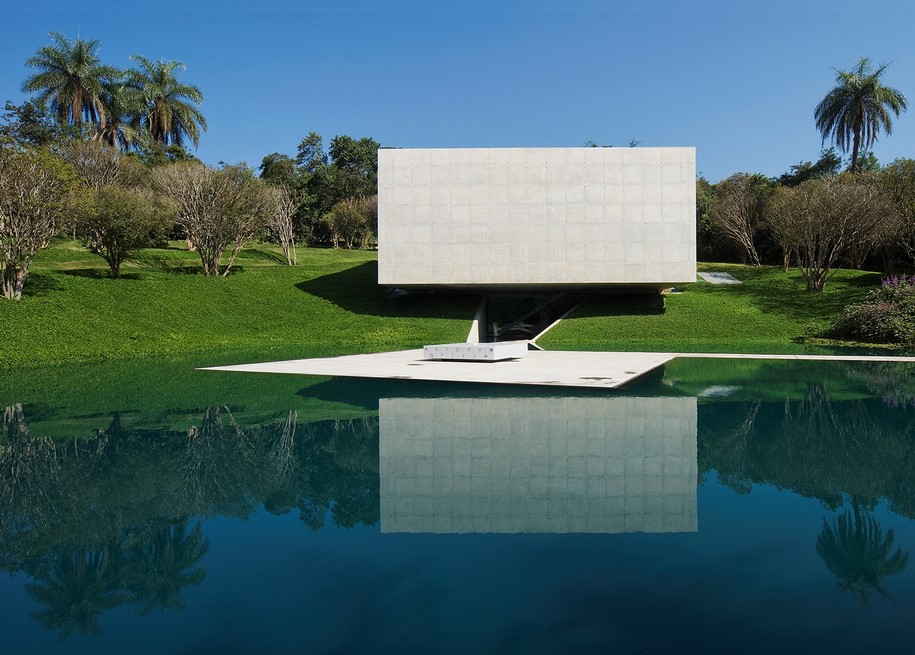

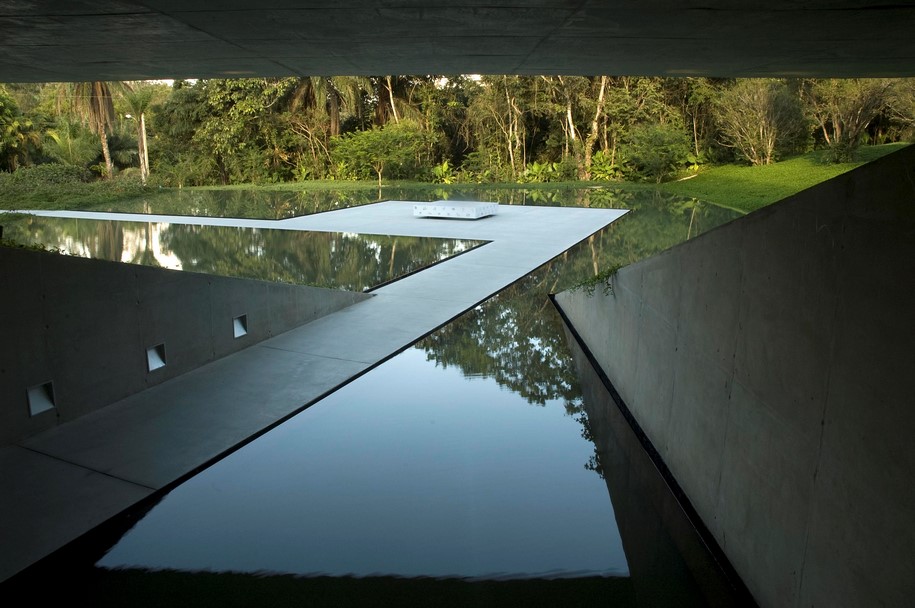 The Adriana Varejão Gallery was commissioned to shelter two works of the artist acquired by the museum and exhibited at Cartier Foundation: the sculpture Linda do Rosário and the polyptych Celacanto Provoca Maremoto (with the further development of the project, the artist created another four works for the building).
The Adriana Varejão Gallery was commissioned to shelter two works of the artist acquired by the museum and exhibited at Cartier Foundation: the sculpture Linda do Rosário and the polyptych Celacanto Provoca Maremoto (with the further development of the project, the artist created another four works for the building).
The project should occupy a hillside with a small slope (typical of the topography of Minas Gerais, composed of old and smooth hills) partially surrounded by the native forest, an area formerly used to store containers.
The original topography was modified for this new use: a huge displacement of earth has cut it, creating the great horizontal plane necessary to the storage.
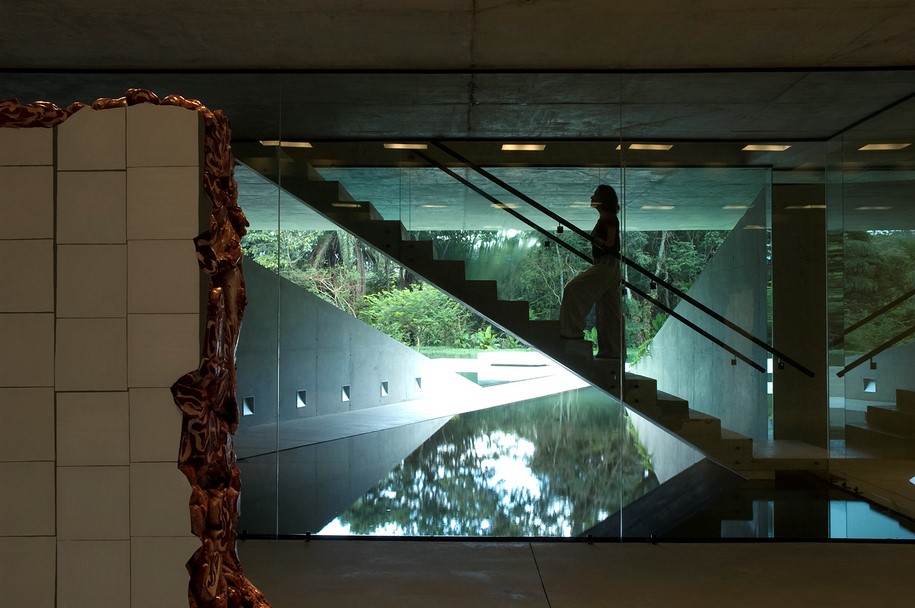
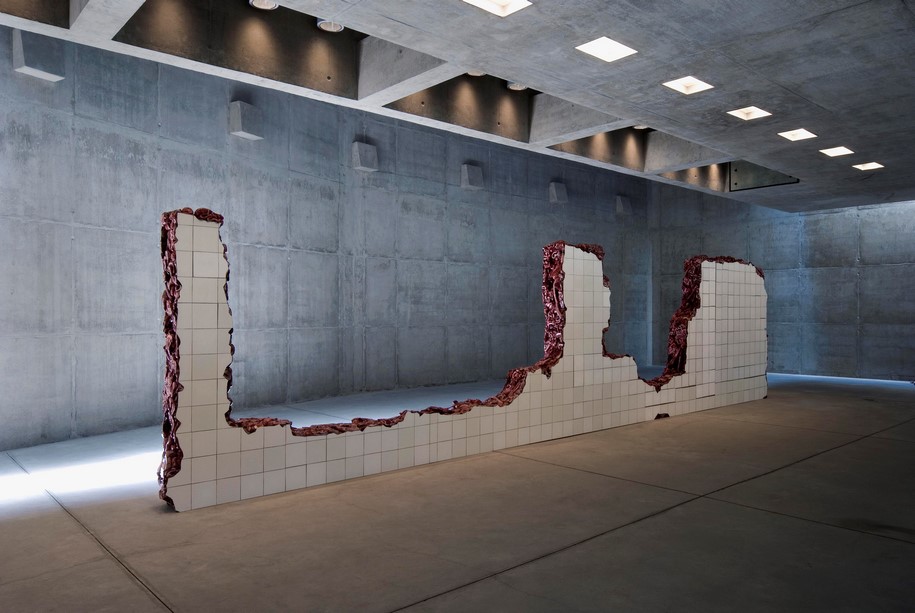
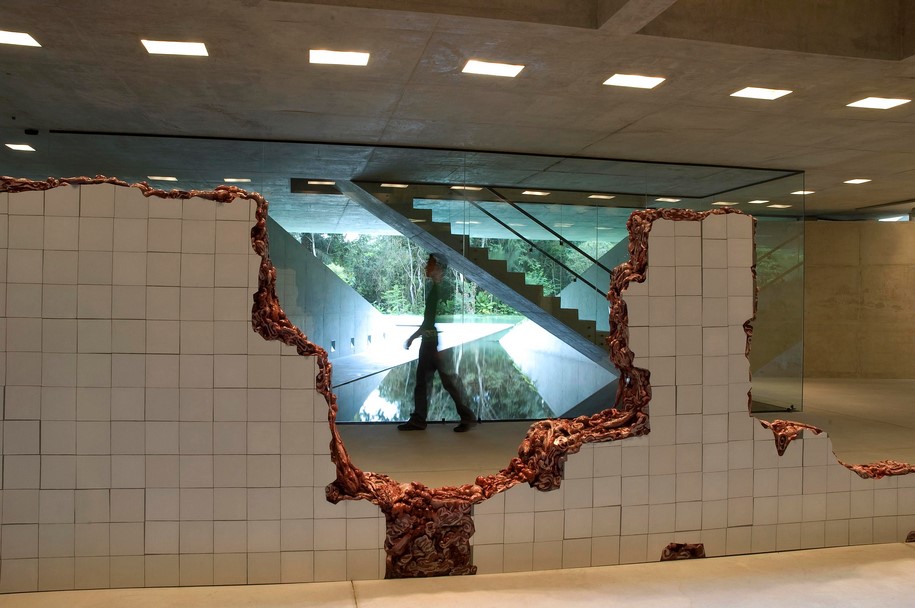
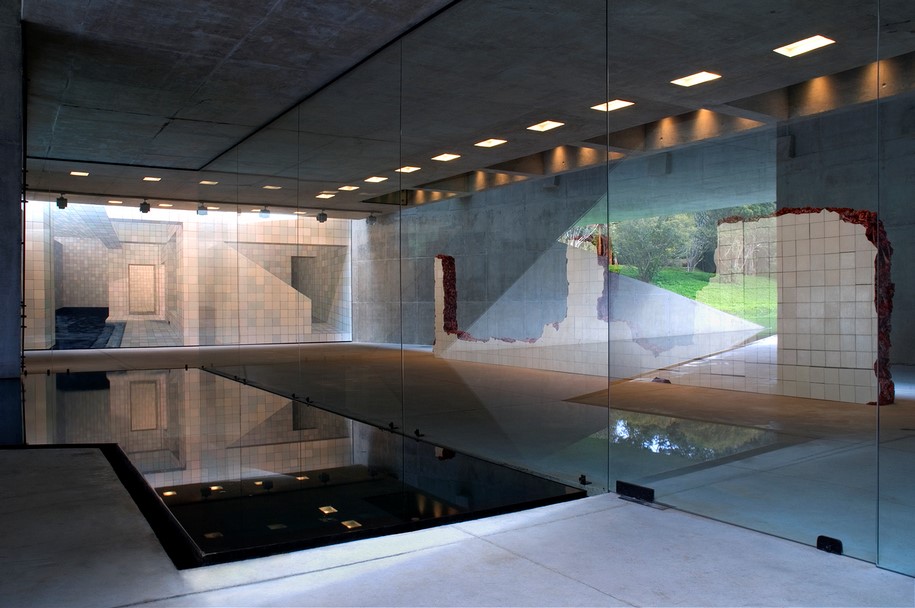
The orientation of the project aimed to recompose the site’s original topography and inserting on it an artificial element: a regular block in reinforced concrete (prestressed wasn’t necessary), partially inserted in the hillside.
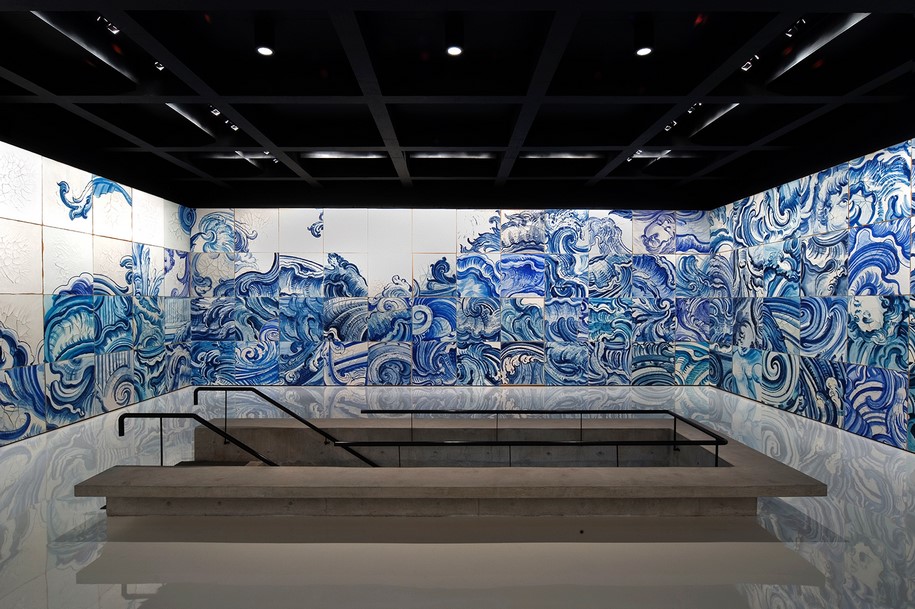
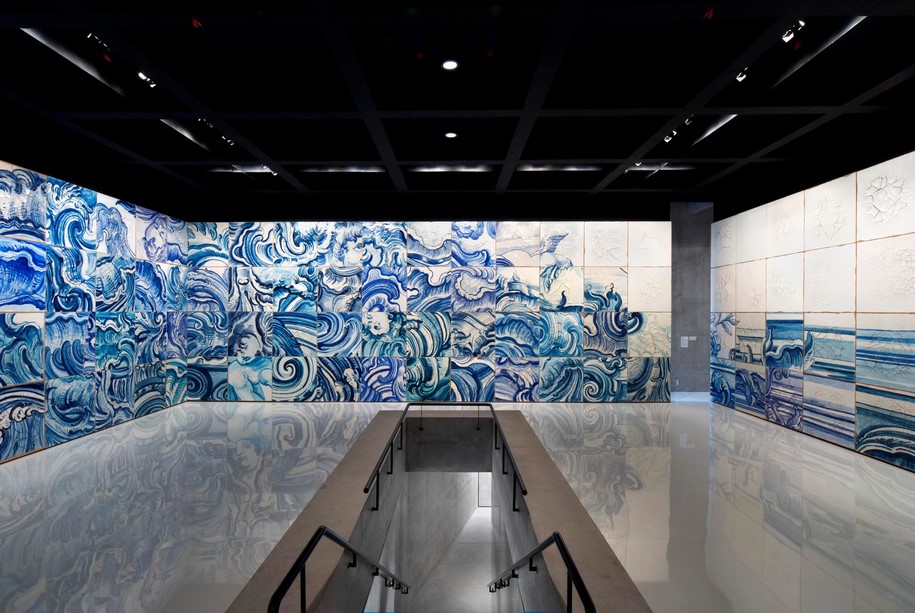
The building structure is composed by an irregular retaining wall that gains the space in the ground floor and receives the loads of the block, in its deepest part, trough two beams, in the middle, trough 4 columns integrated in the wall.
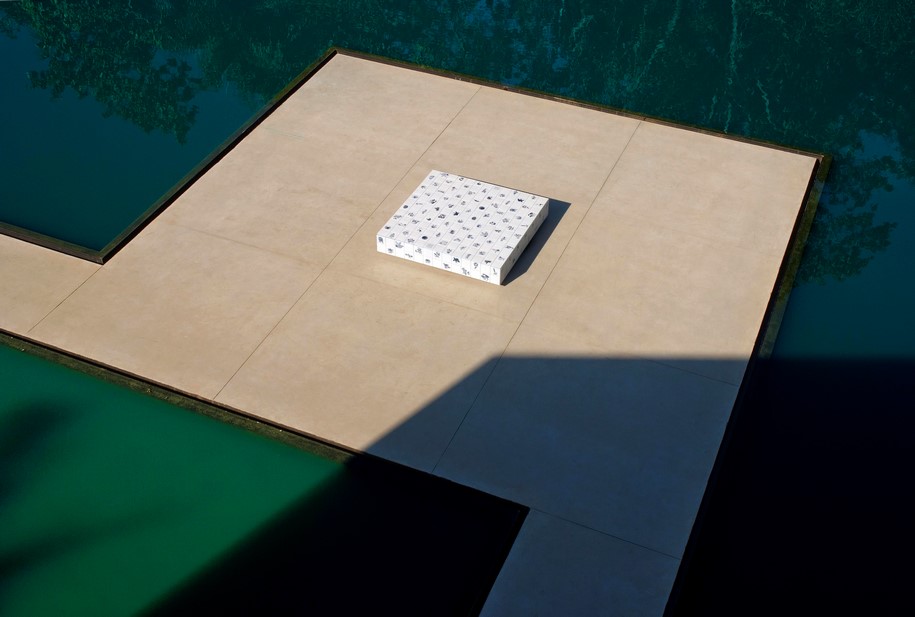
The building was also conceived as a spiral path that connects two different levels of the park, alternating moments of contraction/passage and expansion/exhibition: from the ground floor, (1, contraction) in the middle of the water pound, in a narrow promenade, away from the building; (2 expansion: Varejão’s piece Panacea Phantastica, a tile bench with drawings of hallucinatory plants) The small square plaza of the groundfloor; (3 contraction) The promenade turns to the building; (4 expansion: the sculpture Linda do Rosário and the paiting The Collector) the ground floor, inside the hill, below the concrete block; (5 contraction) The stairs; (6 expansion, the polyptych Celacanto provoca maremoto) The first pavement, inside the concrete block; (7 contraction) The ramp; (8 expansion: another tile bench, now with drawings of birds, Passarinhos-from Inhotim to Demini) The terrace, above the concrete block; (9 contraction) The bridge. And vice versa.
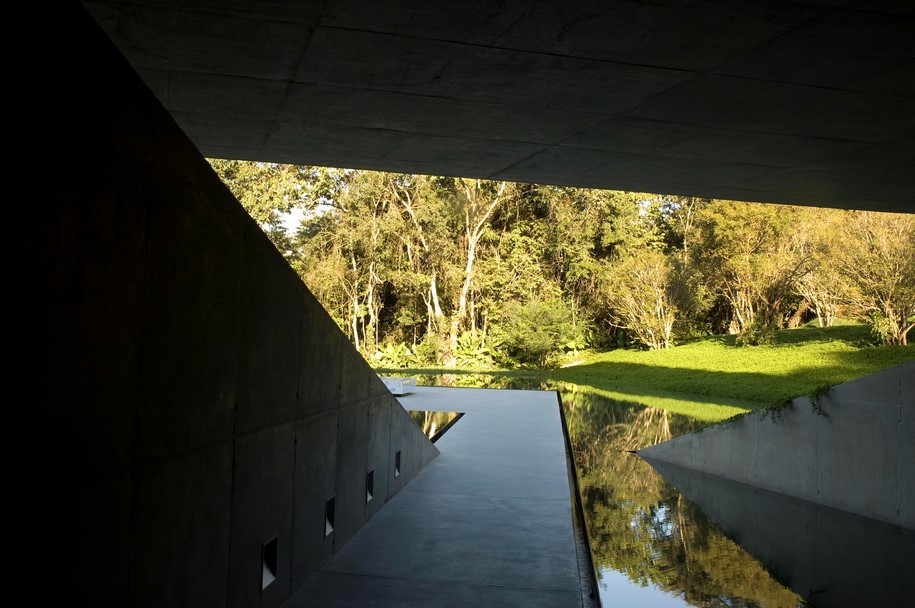
The building was also conceived as a spiral path that connects two different levels of the park, alternating moments of contraction/passage and expansion/exhibition.
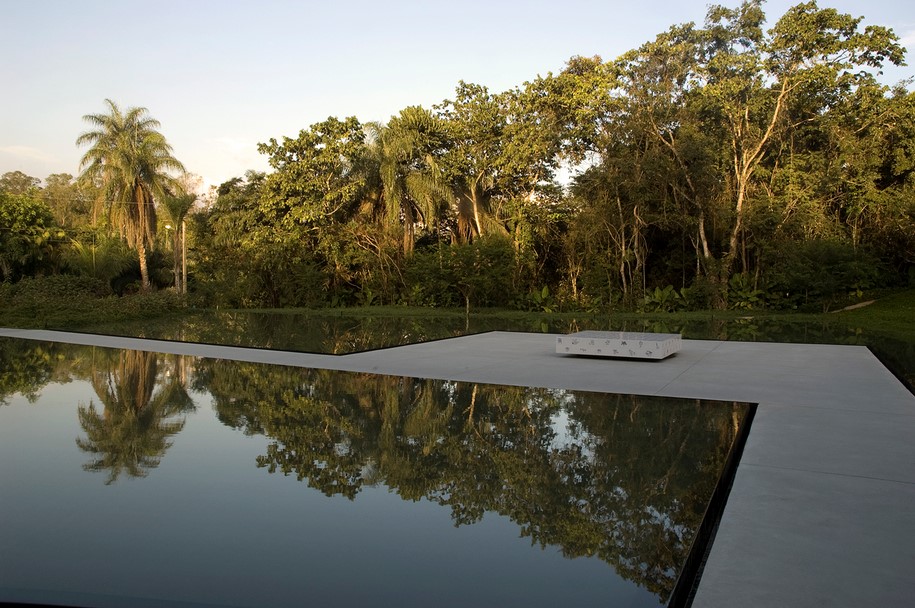
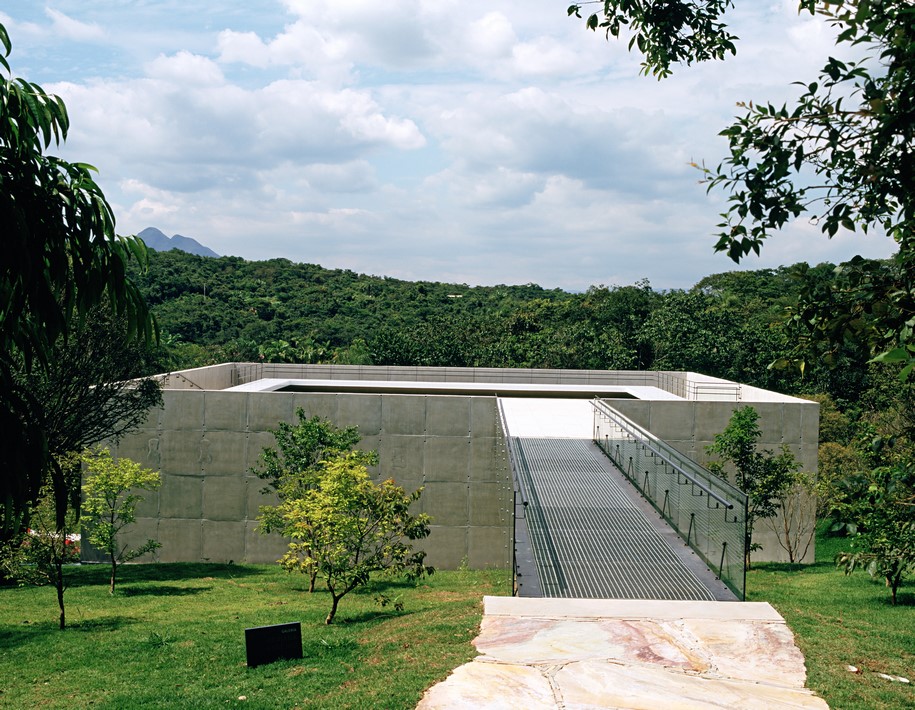
Sketch
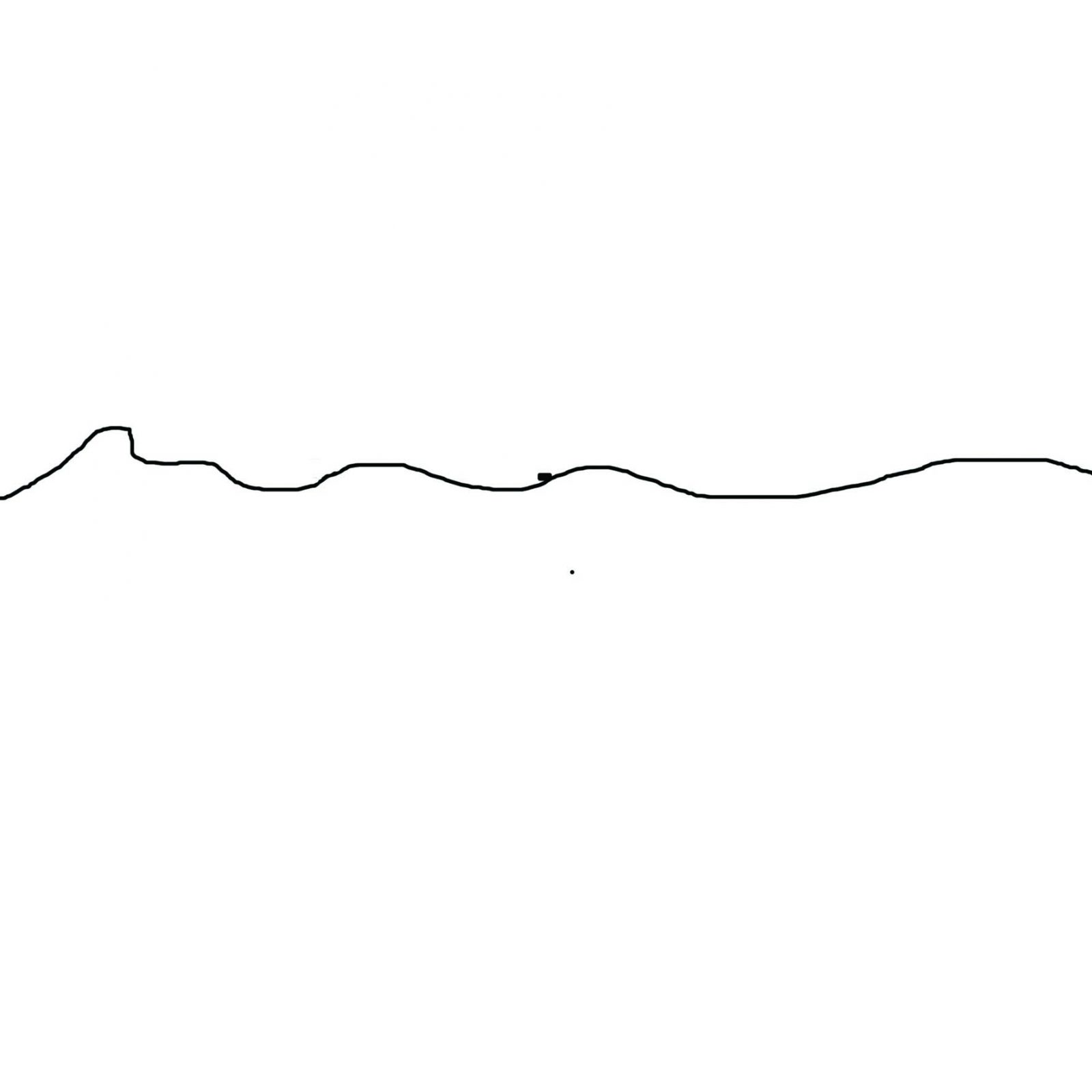
Plans
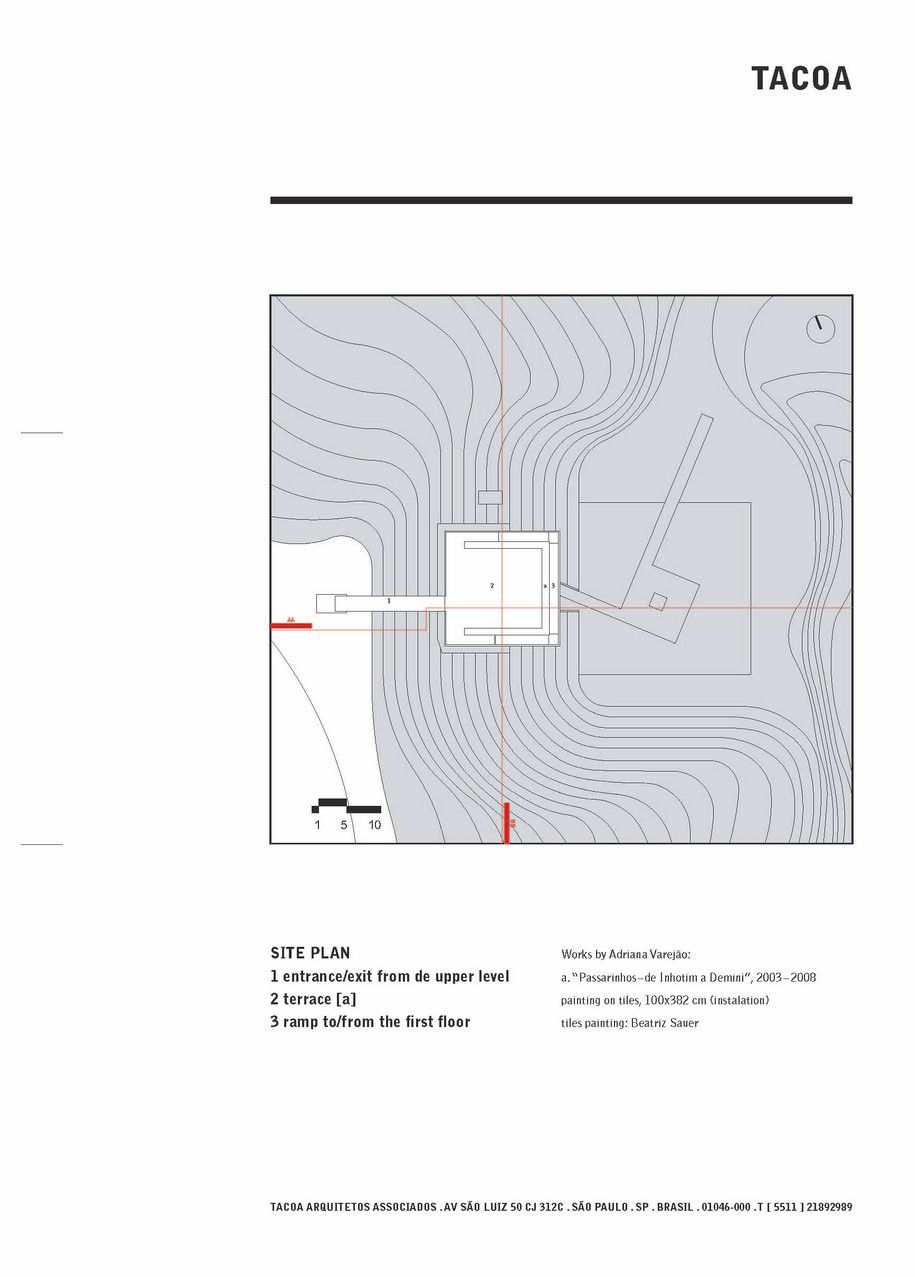
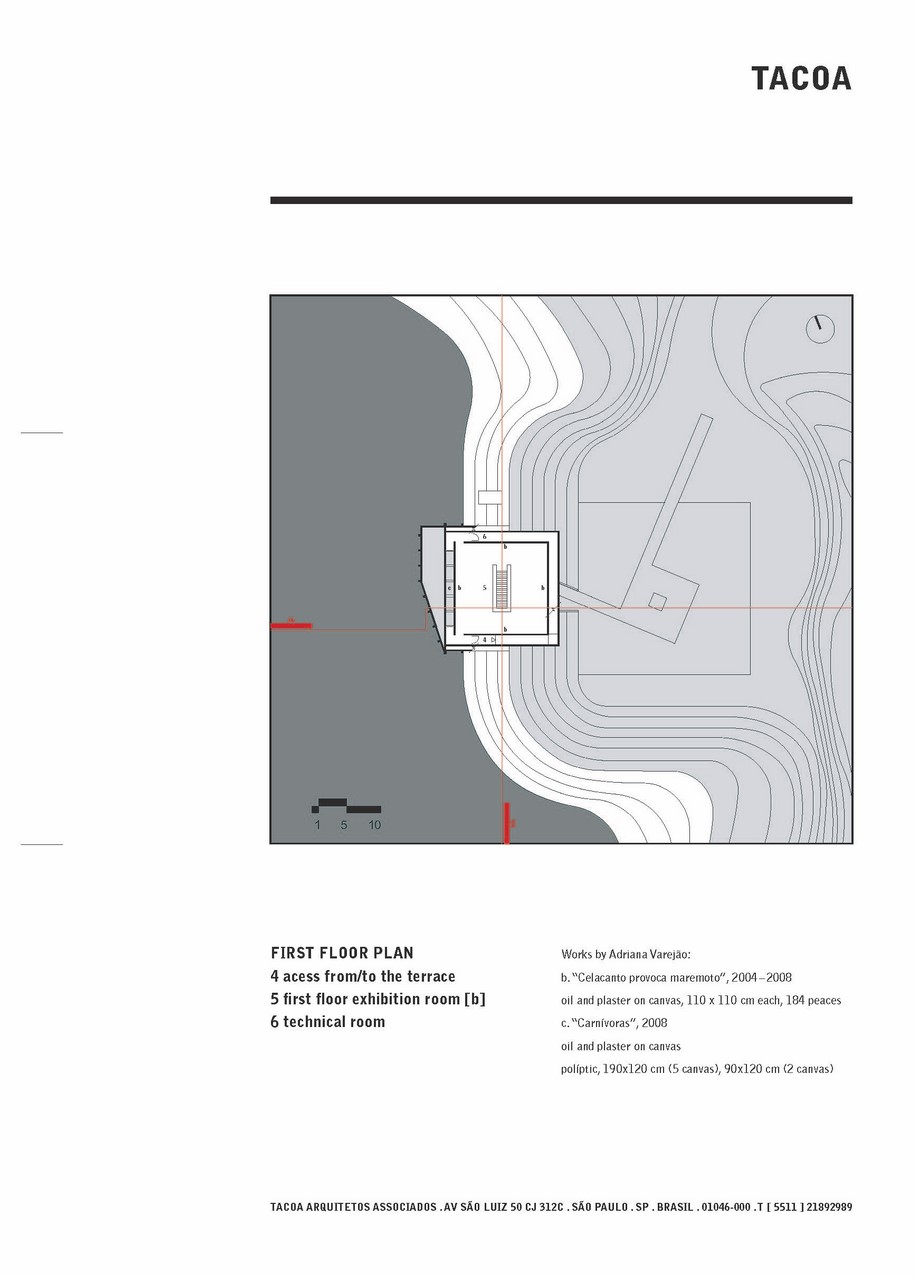
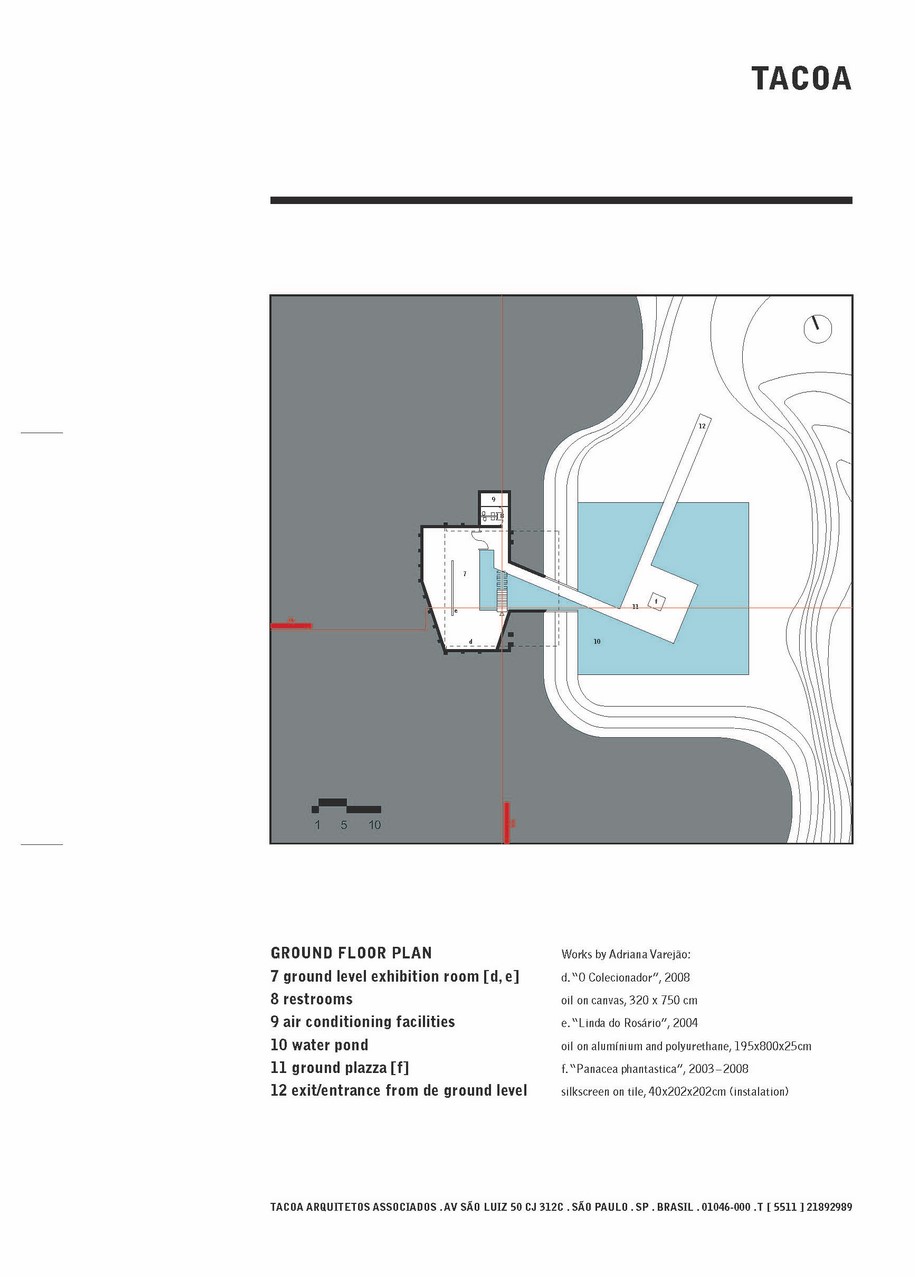
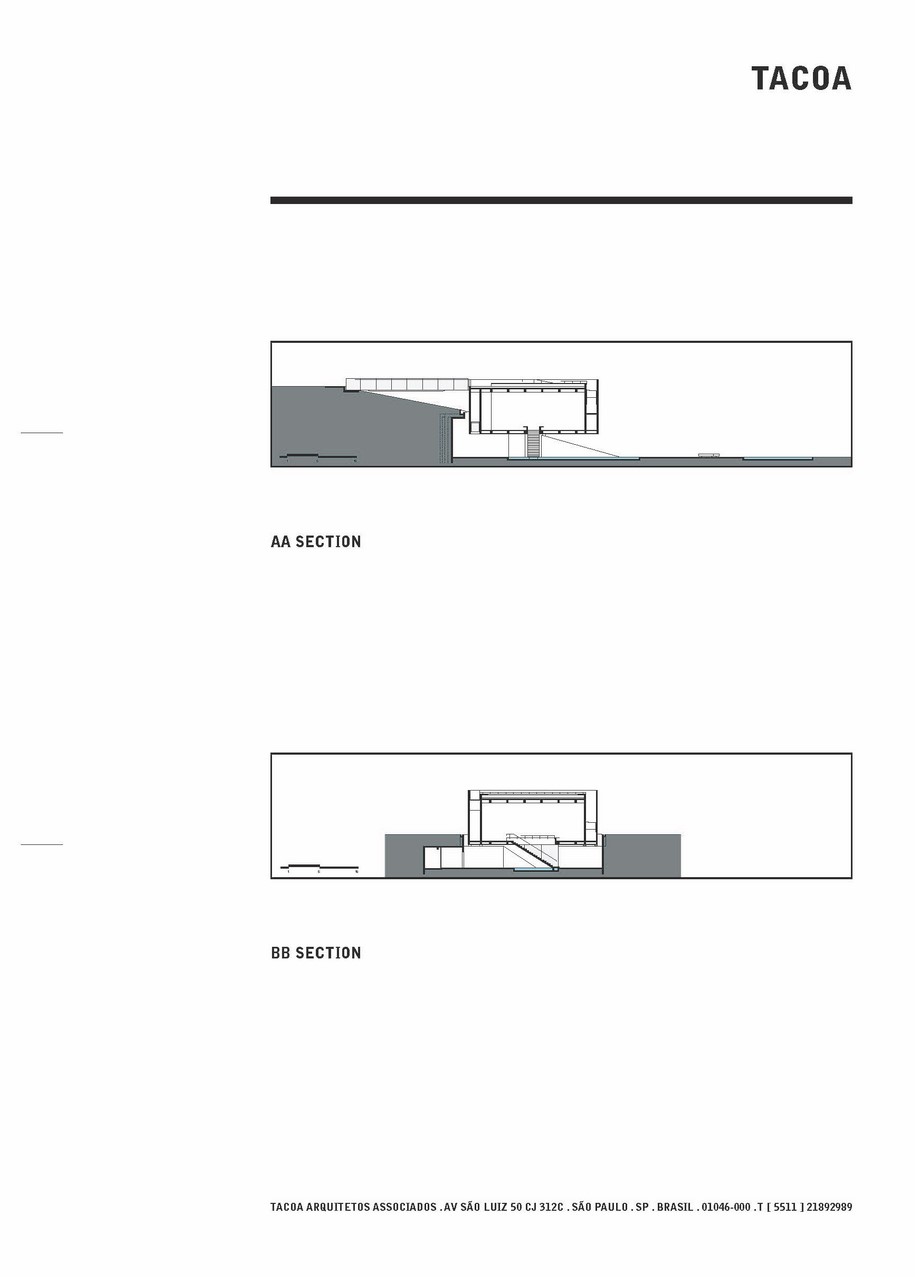
Facts & Credits
Project title Galeria Adriana Varejão, Inhotim Centro de Arte Contemporânea
Location Brumadinho, Minas Gerais, Brasil
Architecture Tacoa Arquitetos Associados / Rodrigo Cerviño Lopez
Architect Rodrigo Cerviño Lopez
Collaborators Fernando Falcon, Eduardo Chalabi
Trainee Marcus Vinicius dos Santos
Photography Eduardo Eckenfels, Vicente de Mello
Structural engineering Suely Bueno, engineer, JKMF
Construction management Felipe Salim, engineer, Janaina Mello, architect, Inhotim
Client Inhotim Centro de Arte Contemporânea
Built area 558 m² (gross)
Cost € 500.000,00
Dates
Design phase (beginning and ending month, year) November 2004, November 2006
Construction phase (beginning and ending month, year) March 2006, March 2008
Maximum height of the building from ground level 10,10 meters
Minimum and maximum temperatures of Brumadinho 80C, July – Minimum, 290C, January, February, March – Maximum
READ ALSO: Neue Nationalgalerie celebrates 50 years and the completion of the shell structure's restoration work by David Chipperfield Architects